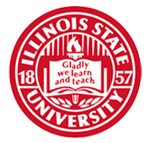Abstract
Clinicians’ decision-making skills are the foundation for the development and implementation of evidence-based practice to provide high quality clinical care. It is proposed that these skills are a result of hands-on clinical experiences (Crebbin, Beasley, & Watters, 2013). Yet some researchers contend that the development of clinical decision-making skills requires direct instruction in critical thinking (Abrami et al., 2011; Finn, 2011). The aim of this study was to explore if and when clinical decision-making processes of speech-language pathology (SLP) students change during graduate study. Web-based case simulations were used to elicit and measure clinical decision-making in eight graduate students at three stages in their training. Participants were evaluated on four clinical tasks including (a) formulation of hypothesis, (b) selection of appropriate evaluation instruments, (c) diagnosis, (d) recommendations for therapy. Quantitative analysis revealed limited changes in SLP graduate students’ clinical decision-making skills over their course of study, as a result of clinical experiences. Participants did not demonstrate change in the skill areas of forming hypotheses and selecting appropriate evaluation measures. However, they did become more accurate in identifying a correct speech-language diagnosis. This study suggests critical thinking, a necessary process for developing clinical decision-making, cannot be an assumed outcome of graduate training programs.
Recommended Citation
Dudding, C. C., & Pfeiffer, D. L. (2018). Clinical Decision-making in Speech-Language Pathology Graduate Students: Quantitative Findings. Teaching and Learning in Communication Sciences & Disorders, 2(1).




